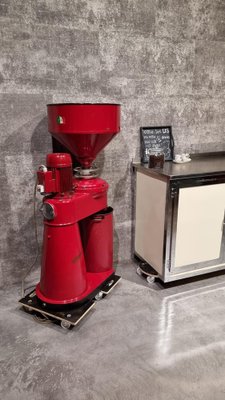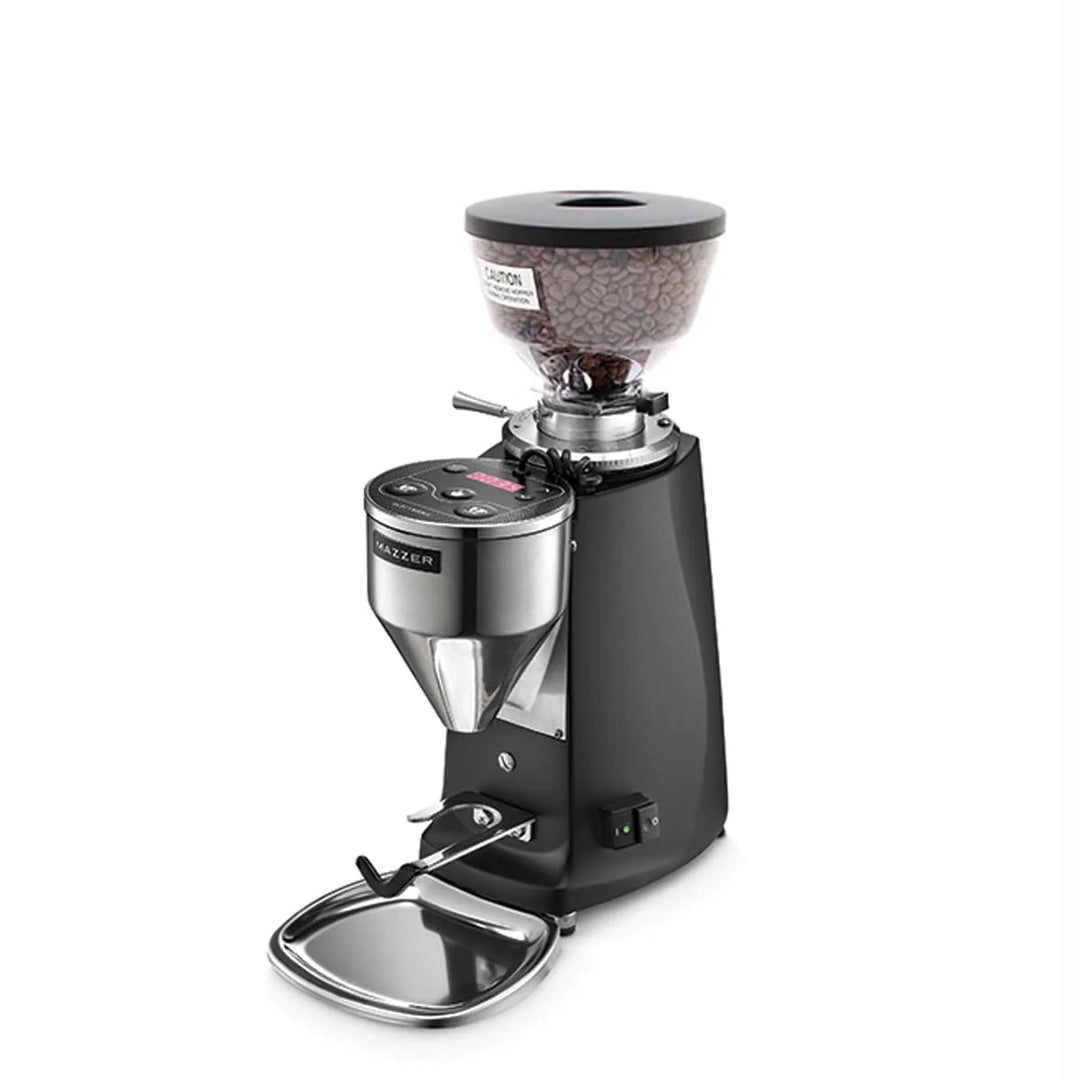Industrial Coffee Grinder vs. Personal Grinder: Key Differences Explained
Industrial Coffee Grinder vs. Personal Grinder: Key Differences Explained
Blog Article
Industrial Coffee Mill Overview: Increase Effectiveness and High Quality
In the competitive landscape of coffee production, choosing the appropriate industrial coffee grinder plays a pivotal role in improving both performance and product top quality. Understanding the subtleties of different mill types and essential functions-- such as customizable work setups and durable building-- can considerably influence the final flavor profile of the coffee.
Recognizing Mill Kinds
When picking an industrial coffee grinder, comprehending the different types readily available is crucial for optimizing both taste extraction and functional effectiveness. The 2 primary types of grinders are blade grinders and burr mills. Blade grinders use sharp blades that chop coffee beans into irregular sizes, bring about irregular extraction and possibly undesirable flavors. While blade grinders are often more appropriate and budget friendly for small procedures, they are typically not advised for commercial use.

Eventually, picking the best sort of mill is essential to preserving top quality and performance in coffee production, making it necessary for companies to purchase high-quality burr mills for optimal results.
Secret Attributes to Think About
Selecting an industrial coffee mill calls for careful consideration of a number of essential features that can substantially affect both efficiency and the overall coffee experience. One of the primary elements to examine is the grinding device. Burr mills are generally preferred over blade grinders, as they offer a constant work size, which is crucial for ideal removal and taste.
An additional essential attribute is the grinder's capacity. Depending upon the quantity of coffee you require to process, pick a model that can manage your needs without giving up rate or quality. Additionally, consider the grind settings supplied. A functional mill with several settings enables you to customize the work dimension to various developing techniques, improving the coffee's taste profile.
Examine the grinder's sound level, specifically in a busy coffee shop or production environment, where too much noise can be disruptive. Spending in a grinder that balances these features can considerably boost both operational performance and the quality of the coffee offered.
Optimizing Grinding Process
To attain the ideal results in coffee prep work, enhancing the grinding process is crucial. The work dimension dramatically influences extraction, flavor, and general high quality of the made coffee.


Additionally, keeping an eye on the grinding rate can maximize the investigate this site procedure. Slower grinding commonly generates less heat, preserving delicate tastes and fragrances. Alternatively, quicker grinding may produce excessive heat, negatively impacting the coffee's high quality.
Maintenance and Care Tips
Correct upkeep and treatment of commercial coffee mills are necessary for making certain ideal performance and longevity. Normal cleansing is the foundation of maintenance; deposit buildup can impact flavor and grinding efficiency. It is advisable to cleanse the mill after each usage, wiping down the exterior and getting rid of any type of coffee grounds from the burrs.
Additionally, inspect the grinding burrs for wear and tear. Plain burrs can jeopardize grind uniformity, so they must be changed as required. Industrial Coffee Grinder. Periodically adjusting the grinder is also critical, as this maintains the wanted grind size for different brewing approaches
Lubrication of moving components must be carried out according to the supplier's specs, as this minimizes rubbing and extends the life of the equipment. go to the website It is vital to make use of food-grade lubes to guarantee safety and security and compliance with wellness policies.
Last but not see this least, keep the mill in a dry and secure atmosphere to avoid corrosion and corrosion. By sticking to these upkeep and care pointers, operators can improve the efficiency of their industrial coffee mills while ensuring high-quality result and extended operational life.
Roi Analysis
Reviewing the roi (ROI) for industrial coffee grinders is important for organizations seeking to enhance their coffee manufacturing capacities. A comprehensive ROI analysis assists establish the financial practicality of purchasing top quality grinders, allowing companies to evaluate the preliminary expenses versus prospective gains.
Analyze the purchase price of the grinder, consisting of setup and any essential adjustments to existing infrastructure. High-performance grinders often lead to lowered grinding time and enhanced throughput, which can significantly boost productivity.
In addition, take into consideration the influence on product high quality. Industrial Coffee Grinder. Superior grinders produce a more consistent work size, which can enhance taste profiles and customer satisfaction, inevitably driving sales. By increasing the top quality of the end product, companies can justify higher rates, resulting in raised income
Verdict
In recap, a commercial coffee mill plays a pivotal duty in boosting both efficiency and item quality within coffee production. By picking top notch burr mills furnished with essential features such as flexible work setups and long lasting building, services can ensure optimal flavor removal. Furthermore, normal upkeep is essential for sustaining mill efficiency and optimizing customer fulfillment. Eventually, the tactical financial investment in a reliable grinder adds significantly to improved earnings and competitiveness in the coffee sector.
In the affordable landscape of coffee production, selecting the right commercial coffee grinder plays a pivotal role in enhancing both performance and item high quality. The two main types of mills are blade grinders and burr grinders. Within the burr mill group, there are level burr grinders and conical burr mills, each with its benefits. Burr grinders are usually favored over blade mills, as they supply a consistent work dimension, which is essential for optimal extraction and taste.
In summary, a commercial coffee grinder plays a pivotal role in boosting both effectiveness and product top quality within coffee production.
Report this page